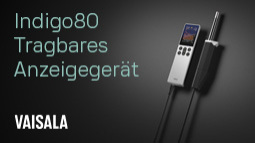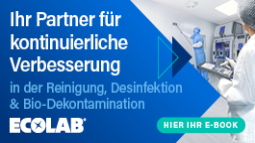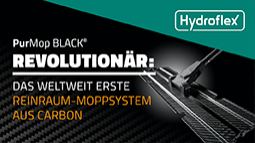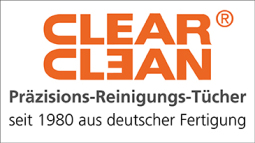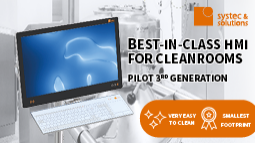Statement by Horst Giesen, Global Portfolio Director for Health & Medical Technologies at Messe Düsseldorf GmbH, on COMPAMED 2018 – High-tech solutions for medical technology
12 – 15 November 2018 in Düsseldorf
The market for medical technology and products is characterized by sustainable growth. The innovation cycles are short. However, approval procedures differ widely from country to country and are very complex as a whole. Restrictions due to trade policies and exchange rate fluctuations are further challenges that providers have to face. That is why they require competent and flexible partners by their side to give them significant additional clout. Regardless whether in product development, manufacturing individual components, complete end products or sales and after-sales services: suppliers in the medical technology industry meet these high requirements. This year, they will once again impressively demonstrate these abilities at their leading international information and communication platform, the COMPAMED 2018, which will take place from November 12 to 15 in Düsseldorf.
Once more, we can expect a future-oriented exchange with an eye to innovative solutions to ensure better healthcare among the over 800 COMPAMED exhibitors and their customers, who are made up of, for example, the over 5,000 exhibitors at MEDICA, the world’s largest medical trade fair that takes place alongside the COMPAMED. Exciting trends are currently setting the pace. For quite some time now, ‘dematerialization‘ and ‘digitalisation’ or ‘networking’ have been buzzwords that quite fittingly describe the events around medical technological product development and are still extremely current.
Providers are turning to suppliers to seek ever more delicate, lighter and at the same time more advanced components such as sensors, chips, wireless modules and even accompanying energy savers or information savers.
These then can be installed in wearables used for diagnostics of vital signs. These devices are in high demand. Another large application is the field of active implants. Participants in this year’s COMPAMED Spring Convention have already learned why these are among the most technically sophisticated medical products with particularly high research, development, production and approval requirements and which are currently the most interesting innovations in this area.
Miniaturised components are among these innovations as well as developments in coating technologies. Experts, for example, describe parylene coatings as multi-talents. Due to their organic compatibility and other characteristics, these progressive, plastic-based coatings are particularly well suited for encapsulated casings for implants. In addition, they can be made into ultra-thin products, which is why they are used in stent technologies, neurostimulation or infusion technologies.
Durability is in demand – or is it the exact opposite?
So whilst certain materials require extreme durability, other usages require the exact opposite. And exhibitors at COMPAMED have the right solutions up their sleeves for these, too. Take applications to treat bone defects, for example. The IFAM (Fraunhofer Institute for Manufacturing Technology and Advanced Materials) recently presented their ideas and developments in this field, in particular a magnesium implant that dissolves after a certain period of time. The ingenious twist in this process: The fibrous structure of the implant supports the bone during growth and stimulates blood vessel growth. This allows the bone to grow, whilst the implant practically breaks itself down at the same time.
Of course, there are also products with a limited lifetime that can be used outside of the body. Despite their disposable nature, they are designed to achieve maximum validity for (diagnostic) purposes and represent high-tech in a miniature format. ‘Lab-on-a-chip’ technologies are a good example. At last year’s COMPAMED, the Fraunhofer Institute of Applied Optics and Precision Engineering (IOF) presented a pocket-sized lab. Ideally, this can be used in future to locate disease indicators in the bloodstream at the patient’s home. This will do away with the need for specialist physicians. All that is required is a disposable fluorescence chip and a smartphone. A drop of blood applied to the chip will then be sufficient to receive a diagnosis via app within minutes.
Print your own pocket-sized lab
This chip, which is based on optical methods, is produced using a fairly low-priced production method that comes across as just as sensational as its effects. The chip contains extremely fine channels and is equipped with a tiny lamp and a miniature photo detector. Both are printed onto the chip using a conventional ink-jet printer that has been only slightly modified. The trick: This is done using special ink. It is populated with fluorescent molecules and nano particles. Furthermore, anchor molecules that are typical for a certain disease marker (e.g. gluten intolerance) are added. When the blood containing the disease marker comes into contact with these special molecules and the fluorescent dyes during analysis, the printed lamp stimulates the dye and causes it to light up. As a result, the photo detector triggers an alarm and proves the presence of the disease.
It is difficult for laymen to understand just how such innovations work exactly, however: With their know-how and strength in development, suppliers in the medical technology industry make a valuable contribution with regard to systems and products that are both economic and offer high benefits to doctors and patients.
For providers exhibiting at the MEDICA, which takes place in parallel, they offer tailor-made innovations and are able to adjust the depth of development according to customers’ requests.
Hand in hand throughout the entire value chain
Every year, this cooperation between COMPAMED and MEDICA provides a fixed time and place for dialogues which bring forth creative ideas for the entire medical technology value chain. This is unique worldwide.
The main focal points of COMPAMED are: Components for medical technology (electronics, components, hoses, filters, pumps, and valves, among other items), materials/ substances, micro- and nanotechnology, made-to-order manufacturing, electronic manufacturing services (EMS), complex manufacturing and equipment partnerships (e.g. OEM – Original Equipment Manufacturers) as well as packaging and services.
Attractive programme highlights on trends in the supplier sector
Two forums also pick up relevant trends for medical technology suppliers in close cooperation with exhibitor presentations.
At the COMPAMED SUPPLIERS FORUM held by the specialist magazine, DeviceMed (Hall 8b), specialists from leading international companies and organisations will be talking about current developments throughout the entire process chain which concern medical technology. Mechanical and electronic components will also be a topic dealt with during the expert lectures, such as innovative materials and all sorts of made-to-order production. This year, particular focus is on: Additive Manufacturing (November 12), Cyber Security (November 13), Regulatory Affairs (November 14) and Wearables (November 15).
The COMPAMED HIGH-TECH FORUM (Hall 8a) presented by the IVAM Association for Microtechnology places key focus on microsystem technology, nanotechnology and production technology and process control.
As the floor space has been expanded this year, the product market “Hightech for Medical Devices” serviced by the IVAM Association for Microtechnology now offers space for even more exhibitors to present their innovations in micro- and nanotechnology, phototonics and new materials. 45 international companies and research institutions have already confirmed their participation.
Another program element of COMPAMED 2018 is the `3D fab+print Additive Manufacturing Conference´ (held in English), in which renowned organizations and companies such as Evonik and Trumpf are participating with speakers. They show application options of the so-called generative or additive manufacturing processes for the fast and economic production of prototypes, components or tools, for example.
COMPAMED takes place in Halls 8a and 8b at Messe Düsseldorf and, due to its specific focus, primarily addresses technical buyers, specialists in research and development as well as packaging, production managers, construction engineers as well as process engineers. The event’s international significance is supported by the fact that out of the almost 20,000 previous trade visitors, 60 percent came from countries outside Germany.
Messe Düsseldorf GmbH
40001 Düsseldorf
Germany
